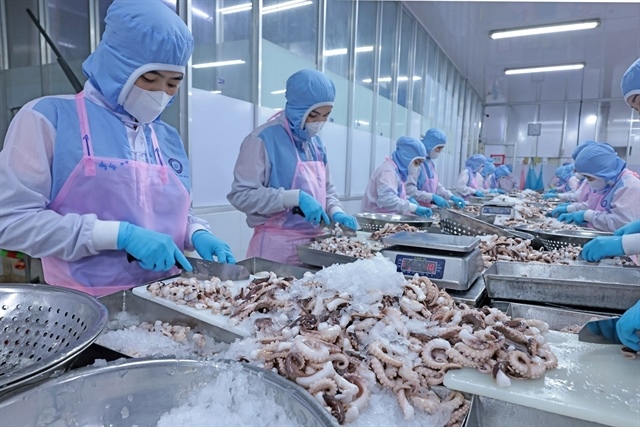New department launched to accelerate agricultural export
New department launched to accelerate agricultural export
The Ministry of Agriculture and Rural Development (MARD) on Wednesday launched Agro Processing and Market Development Authority (AgroTrade).

The new department will advise the minister on the implementation of laws on developing markets of agro-forestry and seafood products and salt; it will coordinate activities to expand markets; and organise the management, processing and preservation of agro-forestry and seafood products and salt, as per the minister’s instructions.
Speaking at the launch ceremony in Ha Noi on Wednesday, Minister Nguyen Xuan Cuong said agriculture played an important role in the country’s economy and the society’s sustainability. After 30 years of doi moi (renewal) period, Viet Nam had evolved from being a rice deficit nation to one that meets local demand as well as has enough for export.
In 2016, the country earned US$32 billion from export. Of this, 10 types of goods crossed more than $1 billion in value each.
Cuong said the country now faced three challenges. Firstly, with 10 million farmer households, agricultural production is less, as is the labour, which is lower than that in the region and the world.
Secondly, Viet Nam is among the top five countries in the world most affected by climate change, especially in agriculture. And finally, integration is weak.
The minister said the sector needed to be restructured and efforts must be focused on concentration and sustainability using technology and a deep value chain that is adaptable to climate change. “At the present, processing and marketing are weak, and the processing value chain is not closed because production is still separate from the market. This leads to having to take measures to rescue agricultural products from plummeting prices,” Cuong said.
The world market is fluctuating unpredictably, especially when it comes to agricultural products, the minister said. At such a time, the AgroTrade would play a critical role by closely co-ordinating with ministries, sectors, localities, associations and businesses to better organise production and market in order to optimally exploit the global market, which has a population of seven billions, and the domestic market, which has around 92 million people.





















